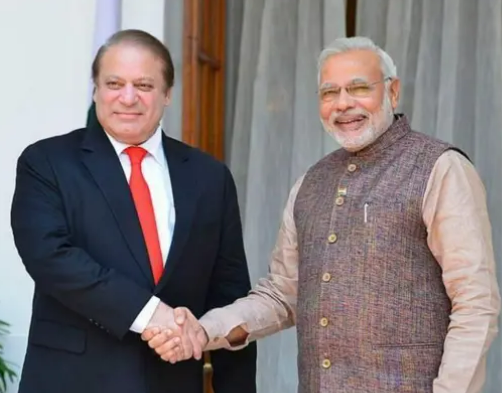Almost 10 years ago, when Narendra Modi was sworn in as the Prime Minister of India for the first time, he surprised everyone by inviting heads of several neighbouring countries to visit India.
The then Prime Minister of Pakistan Nawaz Sharif was also invited to attend the event.
From day one, the Modi government has been saying that neighbouring countries will have a lot of importance in India’s foreign policy.
The policy is officially named ‘Neighborhood First’ or ‘Neighbourhood First Priority’.
Over the past decade, government ministers or policymakers in Delhi have repeatedly said that this is the source of the Narendra Modi government’s foreign policy.
The main essence of ‘Neighborhood First’ is that relations and interests with its neighbours in South Asia (with Sri Lanka, Bangladesh, Myanmar, Nepal, etc.) should be given priority as compared to areas geographically distant from India.
But is this reflected in the performance of the Narendra Modi government?
Delhi has often given more priority to western countries. China, on the other hand, is facing problems.
Neighboring countries that are moving away
During his first visit, Narendra Modi received a huge welcome in Nepal (August, 2014), Sri Lanka (March, 2015) and Bangladesh (June, 2015) and the overwhelming response from the general public, which has not been seen since then.
Relations with Pakistan also show no signs of improving.
A decade after India brought in a policy called ‘Neighbourhood First’, the Sri Lankan government, which was in the midst of a severe economic crisis, has received huge help from India. Now it appears that the government has ignored Delhi and allowed the Chinese spy ship to anchor at its port.
KP Sharma Oli, who is currently in power in Nepal, is also considered anti-India.
Mohamed Mayiju, who took over the presidency after ousting a pro-India government from power in last year’s Maldives elections, demanded that the Indian Army should immediately leave his country.
With the ‘India Out’ campaign launched by his party receiving a large amount of support, Mayiju has turned to China without any hesitation.
Bhutan, which is dependent on India in almost all aspects, including strategic, foreign and economic, has also started border talks with China.
China’s proposal to establish diplomatic relations was also not directly rejected by the country.
